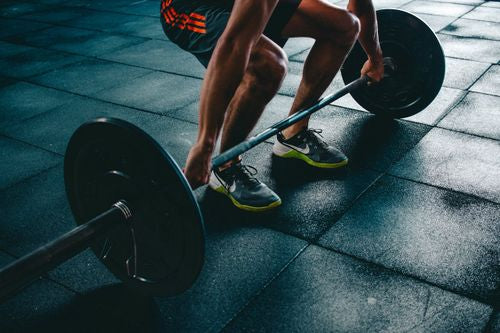If you’ve ever stepped into a gym or scrolled through fitness blogs, you’ve likely come across the term pre-workout. But what exactly is it, and is it something you should be incorporating into your fitness routine? Let’s break it down so you can decide if pre-workout is right for you.
What Is Pre-Workout?
Pre-workout refers to a supplement, typically in powder or drink form, designed to give you an energy boost before exercising. It usually contains a mix of ingredients intended to enhance performance, endurance, and focus during a workout.
Common ingredients in pre-workout include:
Caffeine: The main stimulant, used to boost energy and improve focus.
Beta-Alanine: Helps reduce fatigue and increase endurance.
Creatine: Often included to improve strength and muscle performance.
BCAAs (Branched-Chain Amino Acids): Aid in muscle recovery and reduce soreness.
Nitric Oxide Precursors: Like L-arginine or L-citrulline, these increase blood flow to muscles.
What Does Pre-Workout Do?
The primary goal of pre-workout is to help you perform better during exercise by increasing your energy, focus, and stamina. The caffeine gives you a mental boost, while the other ingredients can help delay fatigue, improve strength, and even reduce post-workout soreness.
Many people find that pre-workout helps them push through intense workouts, especially on days when they’re feeling low on energy. However, it’s important to note that not all pre-workouts are created equal, and their effects can vary depending on the brand and your body’s reaction to the ingredients.
Should You Be Using Pre-Workout?
Whether you should use pre-workout depends on a few factors, including your fitness goals, workout intensity, and how your body responds to stimulants.
1. Your Fitness Goals
If you’re trying to push your strength and endurance to new levels, pre-workout can give you that extra edge. It’s especially useful for high-intensity workouts, like weightlifting, sprinting, or HIIT, where you need a boost to sustain effort.
If your workouts are more moderate or low-intensity, you may not need the extra push. Regular hydration and a balanced diet might give you all the energy you need.
2. Energy and Focus
If you often feel sluggish or lack motivation before hitting the gym, pre-workout could help. The caffeine and other energy-boosting ingredients can get you into the zone and make your workout feel more manageable. However, if you’re sensitive to caffeine, you might experience jitteriness, anxiety, or an energy crash afterwards.
3. Potential Side Effects
Pre-workout can cause side effects for some people, especially if you’re not used to stimulants. Common issues include jitters, rapid heart rate, or digestive discomfort. It’s important to start with a small dose to see how your body reacts, and always check the label for ingredients you’re unfamiliar with.
Alternatives to Pre-Workout
If pre-workout supplements aren’t for you, you can still boost your workout performance naturally. A well-timed snack like a banana with peanut butter, or a small meal with carbs and protein about an hour before exercise can give you a steady stream of energy. Staying hydrated and getting enough sleep also play a crucial role in performance.
Pre-workout can be a great tool for enhancing performance, especially during intense workouts. However, it’s not a necessity for everyone. Whether or not you should use it depends on your goals, energy levels, and how your body handles the ingredients. Always listen to your body and use supplements wisely to support your fitness journey.



